Billy Vera is best known for his song “At This Moment”, which became a Number One hit in 1987 after it was used in the TV show Family Ties. But there’s much more to the Billy Vera story than just that song. By that point, he had already been writing songs for over two decades, including a bona fide garage rock classic and songs recorded by Ricky Nelson and Dolly Parton, who had a Number One hit with “I Really Got the Feeling”. He has also acted in various movies and TV shows, and even won a Grammy for Best Album Notes for a box set of Ray Charles singles.
This interview was for a preview article for a concert by Billy Vera & the Beaters at Yolie’s in Ventura on 8/29/14. It was done by email, with answers received on 8/10/14. (Barry Druxman photo)
Jeff Moehlis: What can we look forward to at your upcoming show?
Billy Vera: We’ll be giving the fans what they expect from Billy & the Beaters, our best-known numbers, some rockin’ R&B along with my songs.
JM: One of your early songs was “Mean Old World”. How did that song find its way to Ricky Nelson, and what was it like to have him record it?
BV: In those days, you’d take your songs to a publisher and they’d have the contacts to get them to the artists or producers. I’d written “Mean Old World” with a new girl singer in mind, Dionne Warwick, not knowing that Burt Bacharach had her all tied up. I was surprised when I was told Ricky Nelson had recorded it and was going to sing it five weeks in a row on The Adventures of Ozzie & Harriet.
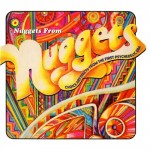
JM: It’s cool that your song “Don’t Look Back”, as performed by The Remains, was on the Nuggets garage rock compilation. What’s the story behind that song?
BV: “Don’t Look Back” was written on assignment from my publisher for soul singer Chuck Jackson, who wound up not recording it. When I heard The Remains’ version, it wasn’t what I’d expected, but I loved it and thought it had hit potential. They broke up after one album and a slot opening for the Beatles tour and the record didn’t sell. Lenny Kaye included it on his Nuggets album. Twenty years later, Rhino put out an expanded version box set which sold like crazy, earning me the first really money on that song. After that, they released a Robert Plant box set which included “Don’t Look Back,” selling another ton of records. So, 40 years after I wrote it, the song finally made some real money and has become a garage rock classic.
JM: Your songs “Storybook Children” and “Country Girl – City Man” led to performances with Judy Clay at the Apollo Theater. Can you tell us about that experience?
BV: Our record was #1 on the New York R&B stations, but no one had seen pictures of us, so at rehearsal, the Apollo’s stage manager, Honi Coles, said “Harlem hasn’t seen you yet, so what I want you to do is, Judy, you enter from stage right and Billy, you wait until she’s taken three steps onstage, then you enter, and watch what happens.” So I did as I was told and when I stepped out, 1500 people gasped. They weren’t expecting a skinny little white boy. We went over so well, Honi moved our slot to right before the star. He said “Ain’t nobody gonna follow you two,” and he was right, we played to standing ovations, stopped the show and had to repeat the second half of “Storybook Children” before they’d let us offstage.
JM: When Billy & The Beaters formed, how do you feel the band fit into the musical landscape of the time?
BV: We didn’t fit in anywhere. There was a group called The Knack that had a big hit and all the record labels were look for groups like that, so although we were selling standing room only at midnight, on Monday nights at the Troubadour, A&R guys weren’t looking to sign a ten piece horn band. It wasn’t until all those Knack copycats flopped that we got signed.
JM: I understand that Richard Adelman, who passed away two years ago, played drums with Billy Vera & The Beaters. Are there any stories involving Richard that you’re willing to share?
BV: Richard was a sweet guy and a terrific drummer. He went off to vacation with his family and got into a freak auto accident which left him paralyzed from the neck down.
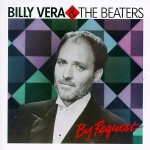
JM: Your best known song is “At This Moment”. Can you tell us a bit about the origin of that song, how it got used in Family Ties, and what it was like to have such a big hit?
BV: I’d just started dating a 20 year old college girl who told me how she broke up with a boyfriend and how hard he took it, so the first 2/3 of the song was
written from his point of view. But I couldn’t figure out how to end it, so I put it away, until she dumped me a year later and then I knew how it should end.
It was the follow-up to our 1981 hit, “I Can Take Care Of Myself,” but it only went to #79, after the label’s promotion man quit. Five years later, Michael Weithorn, producer of Family Ties, heard us doing it in a club and felt it would fit with an upcoming episode. NBC told us they got more mail for that song than anytime in the network’s history. Rhino licensed the master and the record took off on its own, with no payola, virtually no promotion.
I was 42 by then, and had given up on becoming a music star. I was eeking out a living as an actor, so the hit change my life. I finally got to do American Bandstand. Dick Clark liked me and used me on every one of his other shows. I did Johnny Carson nine times and was later told I was his second favorite singer, after Tony Bennett.
JM: You’ve worked with a number of other musicians over the years. Are there any particular highlights for you?
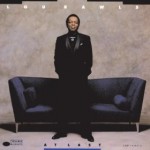
BV: I’ve had the good fortune, from the beginning of my career, to work with some of the greatest performers in the business. I was Ronnie Spector’s conductor/guitarist when she first left Phil in 1972. She had great star quality onstage. I produced four albums by Lou Rawls, one of the great soul singers ever. He recorded seven of my songs. Dolly Parton gave me my first #1 hit, when she recorded my song “I Really Got The Feeling.” It’s been an incredible journey.
JM: What advice would you give to an aspiring musician?
BV: Do all you can to find your own sound, your own voice on your instrument or in your writing. The public responds to that which is different. Dig deep and find out who you are.
JM: What are your plans, musical or otherwise, for the near future?
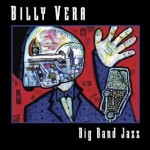
BV: Thanks to Michael Buble who recorded “At This Moment” in two versions, live and in studio, and sold nine million copies, I was able to record my dream album recently, with a big 18 piece band, Billy Vera: Big Band Jazz, a tribute to the great black songwriters of the 1920s, 30s and 40s, like Duke Ellington, Count Basie, James P. Johnson and others. You can buy it on my website: billyvera.com. Just go to the yellow Paypal button and click.
JM: Where are you responding from?
BV: I’m here at my home in Los Angeles.

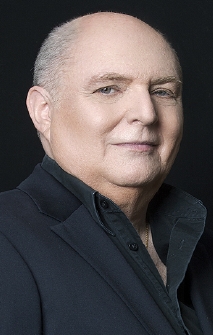
Discussion
No comments for “Interview: Billy Vera”